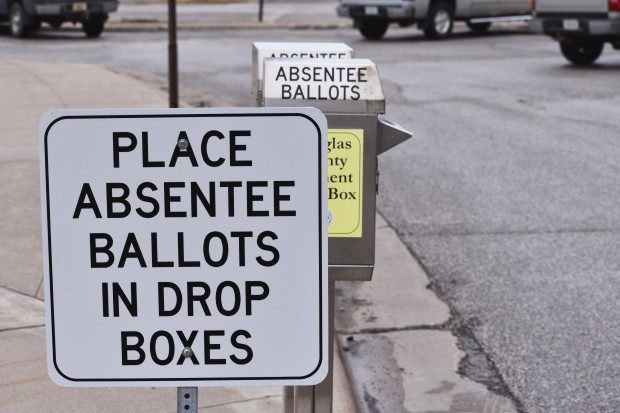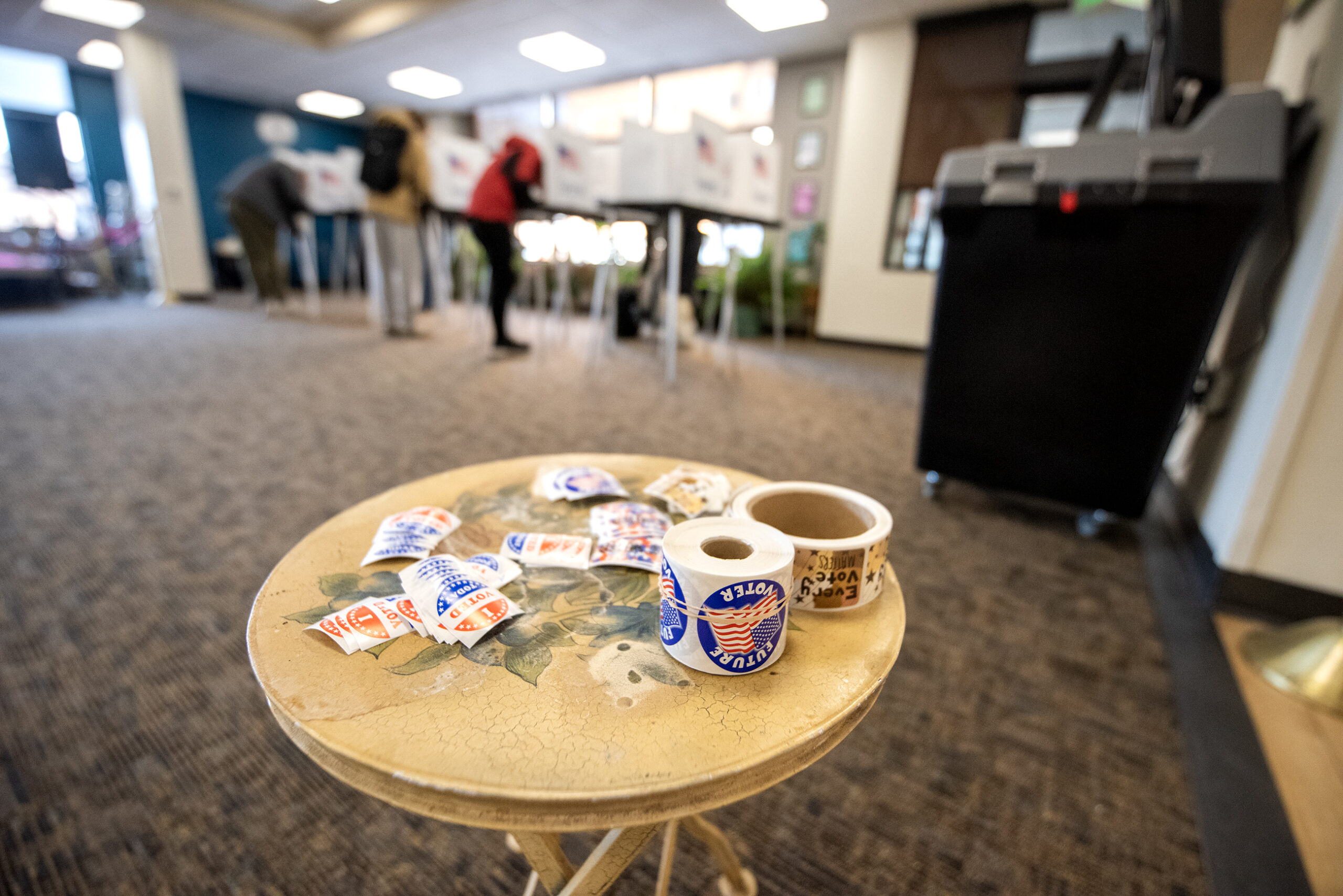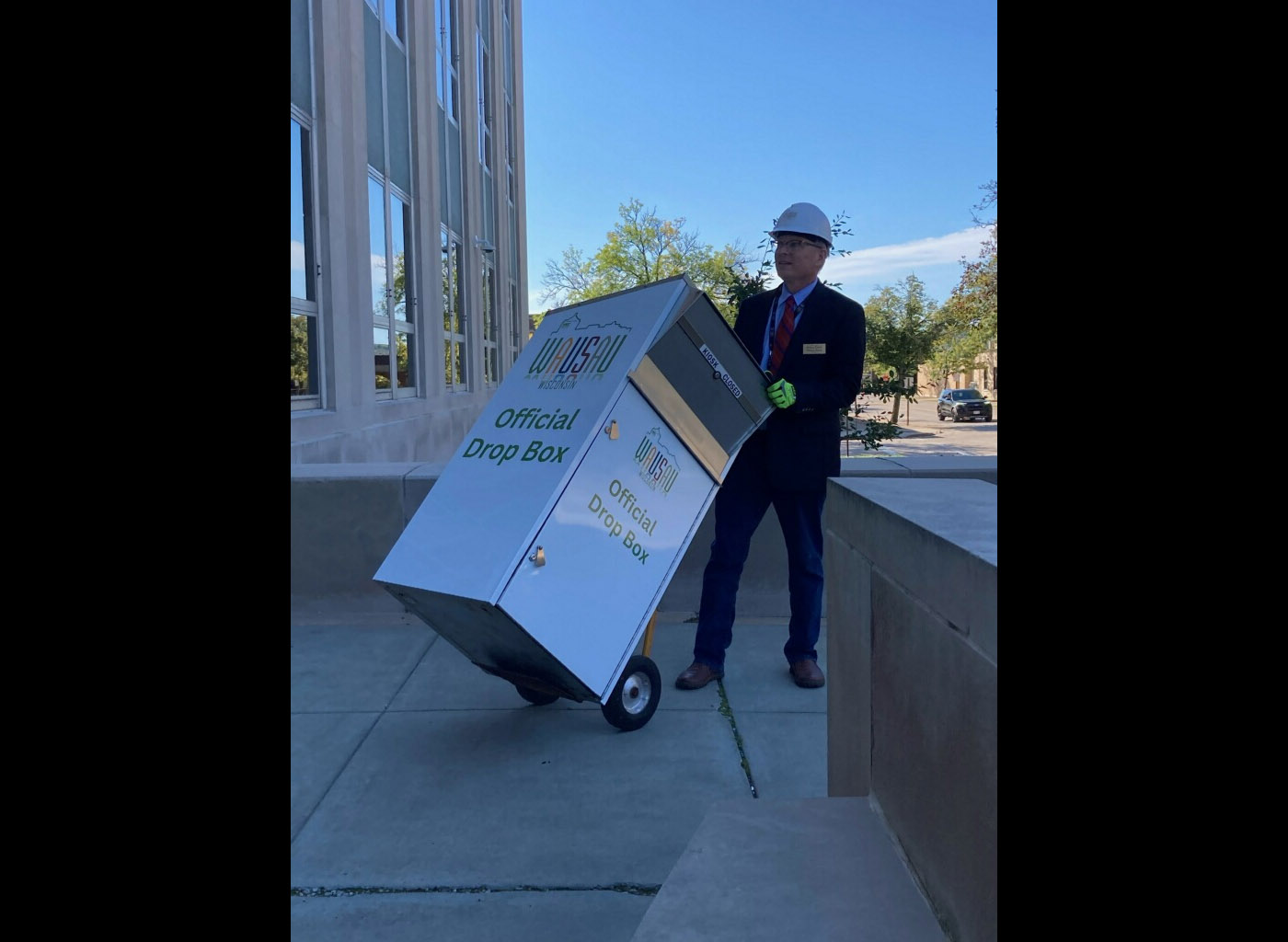Less than two years ago, the Wisconsin Supreme Court’s conservative majority ruled absentee ballot drop boxes are not allowed under state law. Now, legal observers say the court’s liberal majority may be setting up a redo of that decision.
In an order released Tuesday, the Supreme Court agreed to revisit its 2022 ruling in a case known as Teigen v. Wisconsin Elections Commission, which specified that unsupervised absentee ballot drop boxes located outside of election clerks’ offices are not allowed under state law.
Loyola Marymount University Law School Professor Justin Levitt told WPR state statute on absentee voting is ambiguous with regards to drop boxes, and courts are often asked to interpret what lawmakers intended when passing legislation.
However, he said, Wisconsin’s high court, with its former conservative majority, already did that, and typically that precedent is respected under a principle known as “stare decisis.”
News with a little more humanity
WPR’s “Wisconsin Today” newsletter keeps you connected to the state you love without feeling overwhelmed. No paywall. No agenda. No corporate filter.
“It’s particularly unusual for a court to overturn or consider overturning a prior ruling on what a statute means,” Levitt said. “And I’ll say, it’s not a great look, in this case.”
Levitt said courts typically try to avoid flip-flopping on what a statute means because legislatures can always modify laws to clarify their intent.
“And that’s a value in the stability of the rule of law,” Levitt said.
That idea played prominently in conservative Justice Rebecca Bradley’s dissent to Tuesday’s order, which claimed the decision to reconsider the 2022 ruling by the Supreme Court’s liberal justices “is nothing but a partisan maneuver designed to give the majority’s preferred political party an electoral advantage.”
“Our country is saturated with intense partisan politics and disagreement,” Bradley wrote. “Citizens increasingly question the legitimacy of elections with each election cycle. This court should not add fuel to the fires of suspicion engulfing our state and nation.”
Initially, Priorities USA asked the court to rule on other issues, including whether a witness must be present when a voter fills out an absentee ballot, whether voters should be allowed to correct mistakes on absentee ballots days after an election is held and whether standards for challenging voting regulations in court should be changed. Ultimately, the liberal majority decided to only take up the request to reconsider the drop box ruling.
Luke Berg is an attorney for the conservative Wisconsin Institute for Law and Liberty, which represented plaintiffs in the Teigen case. He said courts typically don’t revisit a prior ruling on the same question unless there are changes in circumstances or facts in a case.
“I think it’s pretty clear that the new majority wants to and plans to overrule Teigen, that they wouldn’t have taken this question up unless that was what they plan to do,” Berg said. “And, I think that’s disappointing.”
If the court overturns Teigen, Berg said, there are a number of questions that would have to be decided, such as where drop boxes can go, how many a municipality can have, and how secure they have to be.
“If the court is going to overrule Teigen, as it seems poised to do, it’s either going to have to answer some of those questions, in which case it will be legislating from the bench, which is inappropriate for a court, or we’ll have to not answer any of those questions,” Berg said.
Drop boxes have been subject to several twists and turns in Wisconsin courts
The Teigen case was filed after Former President Donald Trump’s 2020 loss to President Joe Biden. It was one of several lawsuits challenging Wisconsin Elections Commission guidance on drop boxes and other absentee ballot procedures aimed at making voting easier during the early days of the COVID-19 pandemic.
In January 2022, a Waukesha County judge was the first to rule drop boxes are not allowed under state law. The state Supreme Court initially got involved and ruled drop boxes could be used in a February primary but followed up with another order banning their use in a subsequent April election.
In July 2022, the Supreme Court’s conservative majority ruled drop boxes were illegal for all future elections.
Last November, the legal battle resumed in Dane County Circuit Court when Priorities USA argued the ballot box ban and state absentee voting requirements make it “unjustifiably difficult for Wisconsinites to cast their votes and to have those votes count.”
In January, Circuit Court Judge Ann Peacock dismissed those arguments, saying she lacked the authority to overturn the 2022 ballot boxes ruling.
“Even if I agree that Teigen was incorrectly decided, I must follow the Teigen precedent and I leave any revisiting of that decision to the Wisconsin Supreme Court,” Peacock said.
In it’s Monday order, the Supreme Court ordered oral arguments in the drop box challenge to be held May 13.
Wisconsin Public Radio, © Copyright 2026, Board of Regents of the University of Wisconsin System and Wisconsin Educational Communications Board.






